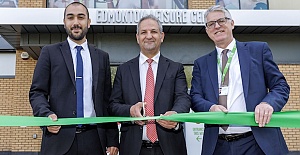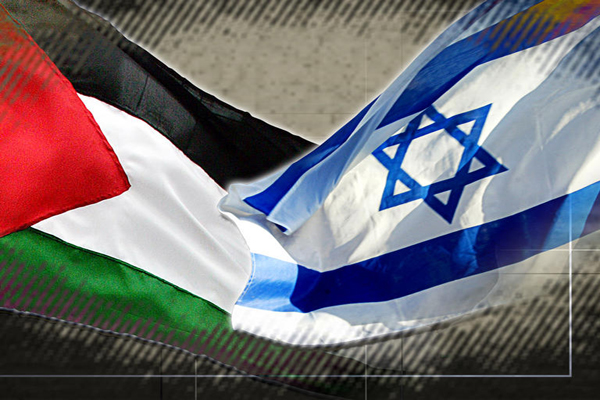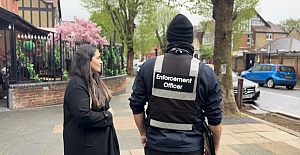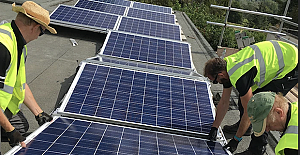Israel said in August it would free 104 inmates in four stages as negotiations resumed after a near three-year hiatus following a dispute over Jewish settlement construction in land Palestinians seek for a state. The issue of thousands of prisoners held by Israel is highly emotive for Palestinians who welcome the inmates home as heroes after being jailed for more than 20 years for attacks on Israelis, and highly divisive inside Israel.
Far-right allies of Prime Minister Benjamin Netanyahu were deeply critical of the move after the cabinet rejected their proposal earlier on Sunday to approve legislation that would prevent further such prisoner releases from taking place.
Housing Minister Uri Ariel, of the pro-settler Jewish Home party that sponsored the thwarted bill, said in several television interviews that freeing prisoners charged with having attacked or killed Israelis "doesn't contribute to peace, and only leads to more terrorism".
Israel's chief negotiator, Justice Minister Tzipi Livni, responded in an interview with Israel's Channel 2 television that Ariel's party "doesn't want negotiations", adding: "If they have another solution, let them tell us what it is."
A statement from Netanyahu's office on Sunday said 26 prisoners, jailed for violence committed before a 1993 interim accord, would be freed. Twenty-six prisoners have already been freed.
The inmates due to be freed spent 19 to 28 years behind bars, 21 are from the occupied West Bank and five are from the Gaza Strip.
The statement suggested the latest releases would not happen before Tuesday, saying Israelis would have 48 hours to appeal the names on the list being published later on Sunday.
Peace talks have showed few overt signs of progress since they resumed in August, with a goal set by Washington to achieve a deal by the middle of next year.
A senior Palestinian official described the talks on Thursday as very difficult.
Livni said "the situation is sensitive, vulnerable. We could have conflict even tomorrow morning in the negotiations room and it all can explode."
The talks could be headed for a crisis over an Israeli plan published on Thursday to further expand it settlements in the West Bank, including in East Jerusalem, in an apparent effort to override far-right objections to the prisoner releases.
Jerusalem is another of the divisive issues in the talks on creating a Palestinian state in land Israel captured in a 1967 war.
The sides are also divided over where the borders should run and Palestinian demands for a "right of return" for refugees and their descendants.


 Prime Minister Keir Starmer's 2025 Easter message
Prime Minister Keir Starmer's 2025 Easter message After Nesil Caliskan a by-election will be held in Jubilee ward in Enfield
After Nesil Caliskan a by-election will be held in Jubilee ward in Enfield Publishing the analysis, Labour’s Cllr Ergin Erbil said Everybody in Enfield deserves basic rights
Publishing the analysis, Labour’s Cllr Ergin Erbil said Everybody in Enfield deserves basic rights Gaza-Israel conflict Statement from Cllr Ergin Erbil, Leader of Enfield Council
Gaza-Israel conflict Statement from Cllr Ergin Erbil, Leader of Enfield Council UK AMBASSADOR TO TURKEY VISITS FETHIYE
UK AMBASSADOR TO TURKEY VISITS FETHIYE Journalists from Europe held the Turkish Media Workshop in Skopje
Journalists from Europe held the Turkish Media Workshop in Skopje The European Union called on Turkey to uphold democratic values
The European Union called on Turkey to uphold democratic values Turkish citizens in London said Rights, Law, Justice
Turkish citizens in London said Rights, Law, Justice The 'Prince of Paris' has impressed in his first EuroLeague season
The 'Prince of Paris' has impressed in his first EuroLeague season Saran Media And Euroleague Basketball Extend Media Rights Partnership for Four More Years
Saran Media And Euroleague Basketball Extend Media Rights Partnership for Four More Years Will Rangers be Jose Mourinho’s next victim?
Will Rangers be Jose Mourinho’s next victim? Jose Mourinho's Fenerbahce face Rangers on Thursday
Jose Mourinho's Fenerbahce face Rangers on Thursday Residents welcomed back to Edmonton Leisure Centre
Residents welcomed back to Edmonton Leisure Centre Barclays has become the biggest UK lender so far to cut mortgage rates
Barclays has become the biggest UK lender so far to cut mortgage rates THE SPRING STATEMENT EXPLAINED, UK ECONOMIC OUTLOOK AND GROWTH FORECASTS
THE SPRING STATEMENT EXPLAINED, UK ECONOMIC OUTLOOK AND GROWTH FORECASTS Launch of Made in Enfield gift shop to celebrate local artists and designers
Launch of Made in Enfield gift shop to celebrate local artists and designers
















